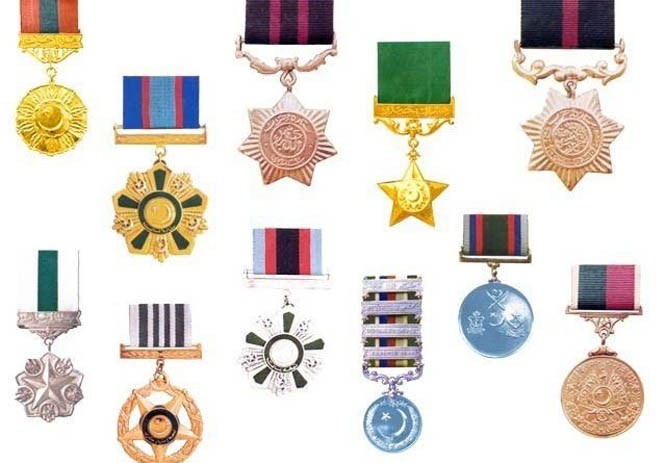
There had never been an uproar over the criteria for civil awards in Pakistan -- until this year’s list of recipients was announced

The practice of giving out civil awards in Pakistan goes back to 1956, the year Pakistan became a republic. Among the first batch of recipients were figures like Queen Elizabeth. It is safe to say that never before have we had such uproar about how the criteria for awards translates into something actionable, a list of candidates is drawn up, and a choice is made eventually. As fate would have it, 2019 was going to be the year that this discussion would find its way into mainstream discourse.
The ruckus is not because an Arab monarch or a Chinese friend was given the award. Even if it were, there would be a way to counter it: Look, these things are political. Maybe if you read more, you would understand that a state has a certain outlook and this is where decisions like these find an anchor. Maybe if you read more, you would understand what great dividends there are to be actualised from steps like these. Maybe if you read books on politics, you would understand.
Why this article is being read this very moment is not because awards are given to foreign dignitaries with questionable credentials, it is not because we are confused as to why Mohsin Hamid was given the award right after Mohammed Hanif; it is because a young Pakistani actress called Mehwish Hayat won the Pride of Performance award and we suddenly are appalled at the arbitrary and whimsical way in which these awards are given out. We want to demystify the process. The simple answer, ask any civil servant or ministry official, is that cabinet ministries and provincial governments make recommendations that reach three award committees during May-July and the final list of candidates reaches the President after the Prime Minister’s approval. This year 127 people got the award.
But, the vitriol on Twitter that followed right after Mehwish Hayat won the award was a testimony to the oppressive patriarchal structures that we are caged in and negotiate with. The minute women turn the male gaze into profit and onto itself, hysterical men respond with filthy one-liners that have stood the test of time but eaten us up a whole. And the rest of us too, breathing the same toxic air, will have questions.
Awards, in the logic that we have learnt to associate with them, are dangerous: scarcity leverages prestige -- awards only mean something if a certain number of people win them. If they are for everyone who has produced some work that we can read meanings into, as is the currency of the postmodern world, then they would lose all significance. The multitudes that we live with yet struggle to reconcile with are that art is easy and art is impossible. And not merely because of the reasons that Emile Cioran posited. "As art sinks into paralysis and artists multiply. This anomaly ceases if we realise that art, on its way to exhaustion, has become both impossible and easy." In a patriarchal, capitalist society where we are still grappling with the baggage of colonisation and its ever-evolving manifestations, we wonder if anything worth saying can even be said.
Next-door neighbour India, post the BJP, has democratised things. Even ordinary people can now make nominations. But India has also received a lot of criticism for giving out more Padma Shri awards during election years. Padma Shris are given for distinguished service in any field -- arts, science, social work, and public affairs.
The concern is that these awards are not just awards, they symbolise state patronage. The dynamic is problematic. Ghalib, for instance, wrote a qasidah for Queen Victoria to ask for the title of Mihr-Khwan. The Ghalib that we know and read is not the Ghalib that got state patronage, although we wish that he had had social security to fall back on. The point of bringing this up is not to forge an equivalence but to highlight that this is a two-edged sword vying for recognition by the state can be a slippery slope, and receiving the award can still be hard to reconcile with. In the absence of an environment where free thought can flourish and artistes are financially secure, there is little that can be achieved from analysing someone’s win in a linear way. Awards are not only emblematic of power but also reinforce power hierarchies. Even if we democratise processes, we might only be able to appreciate the value of art only when we look back.